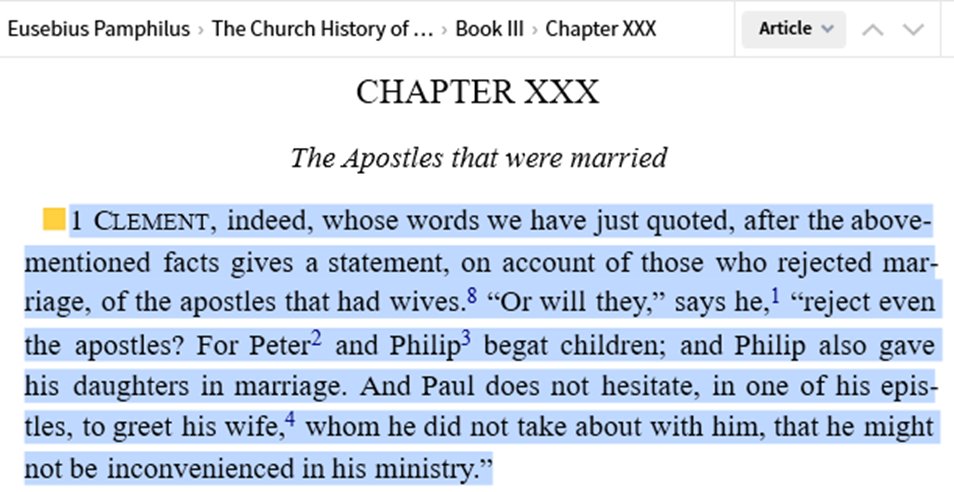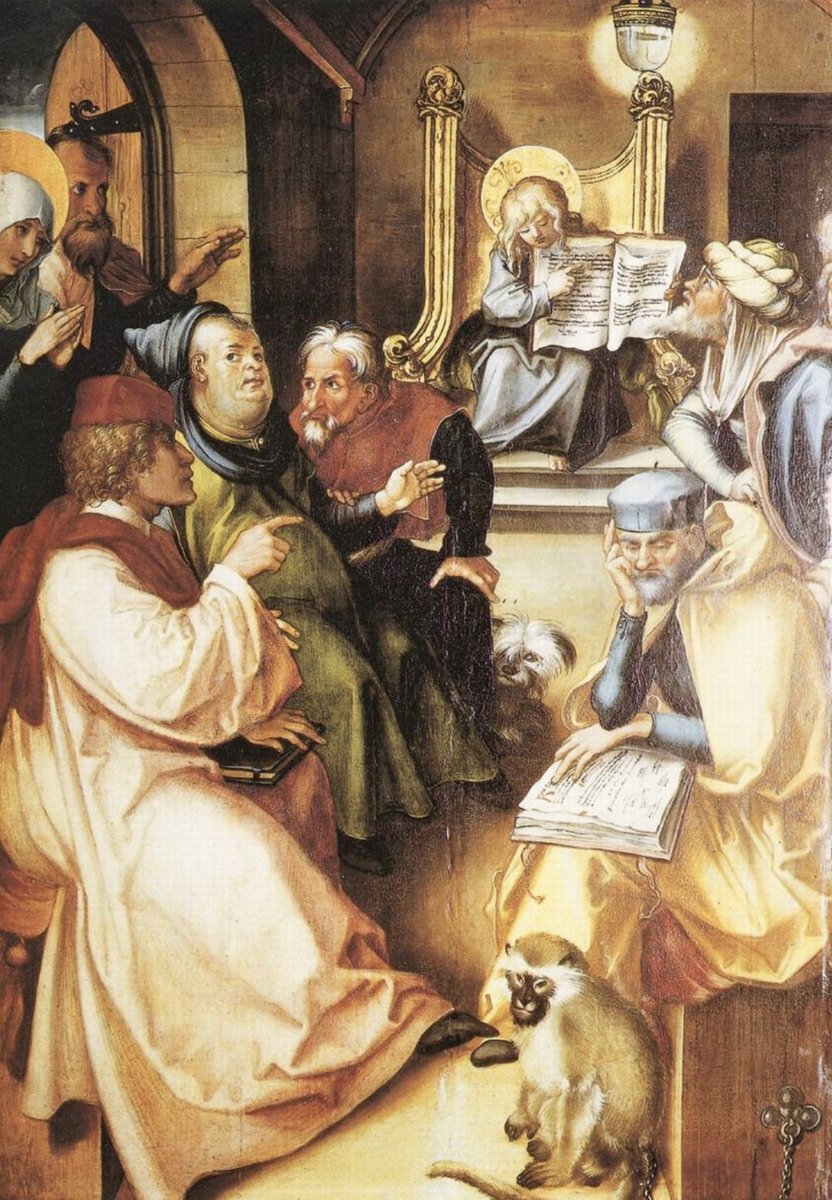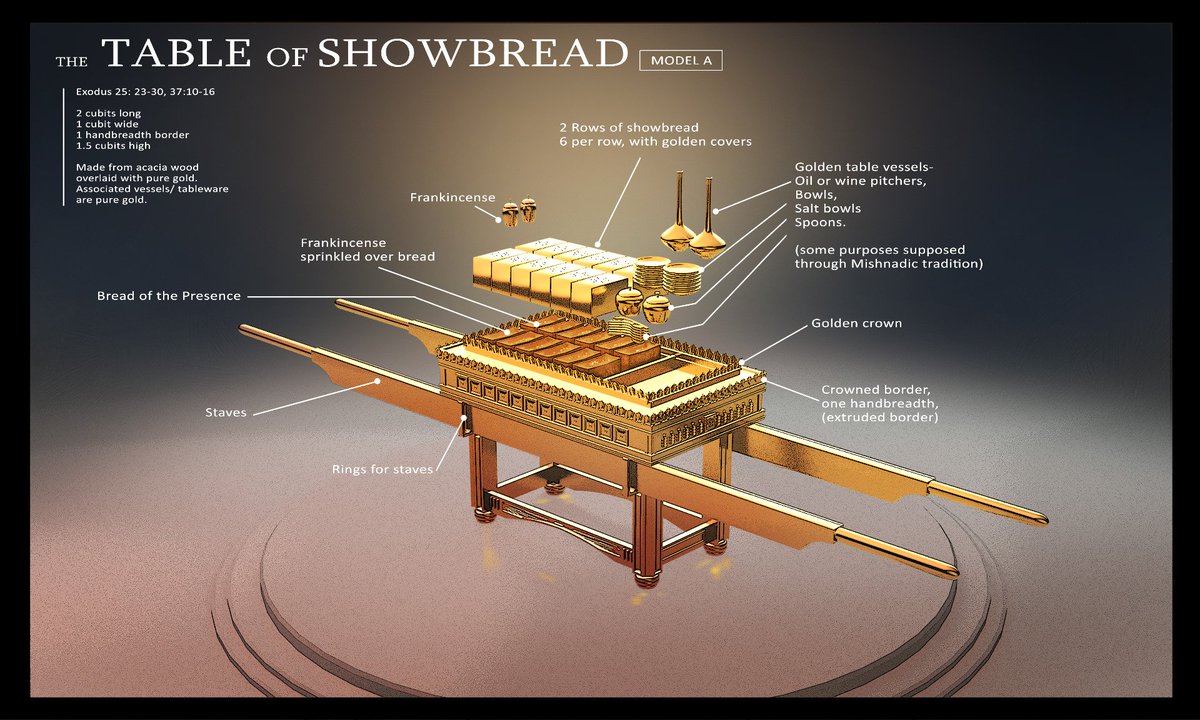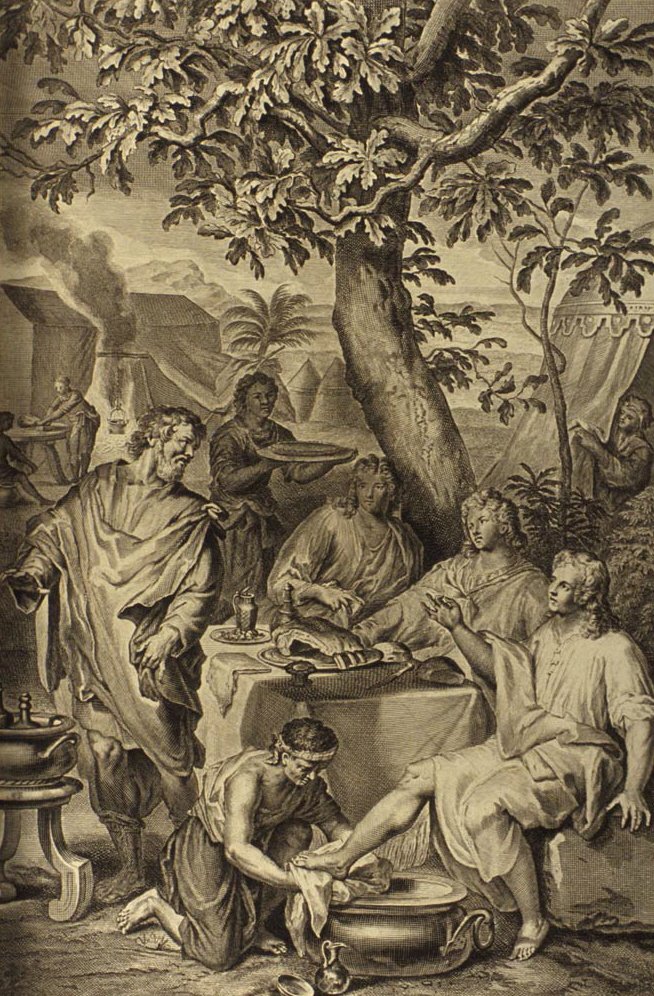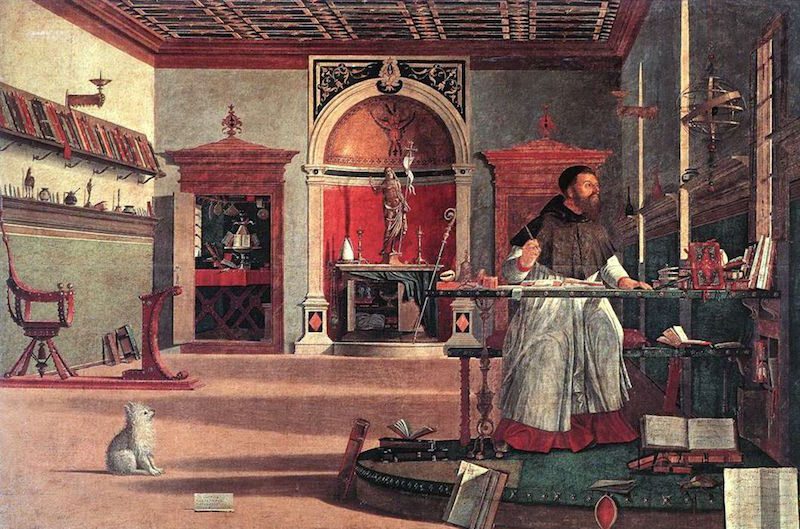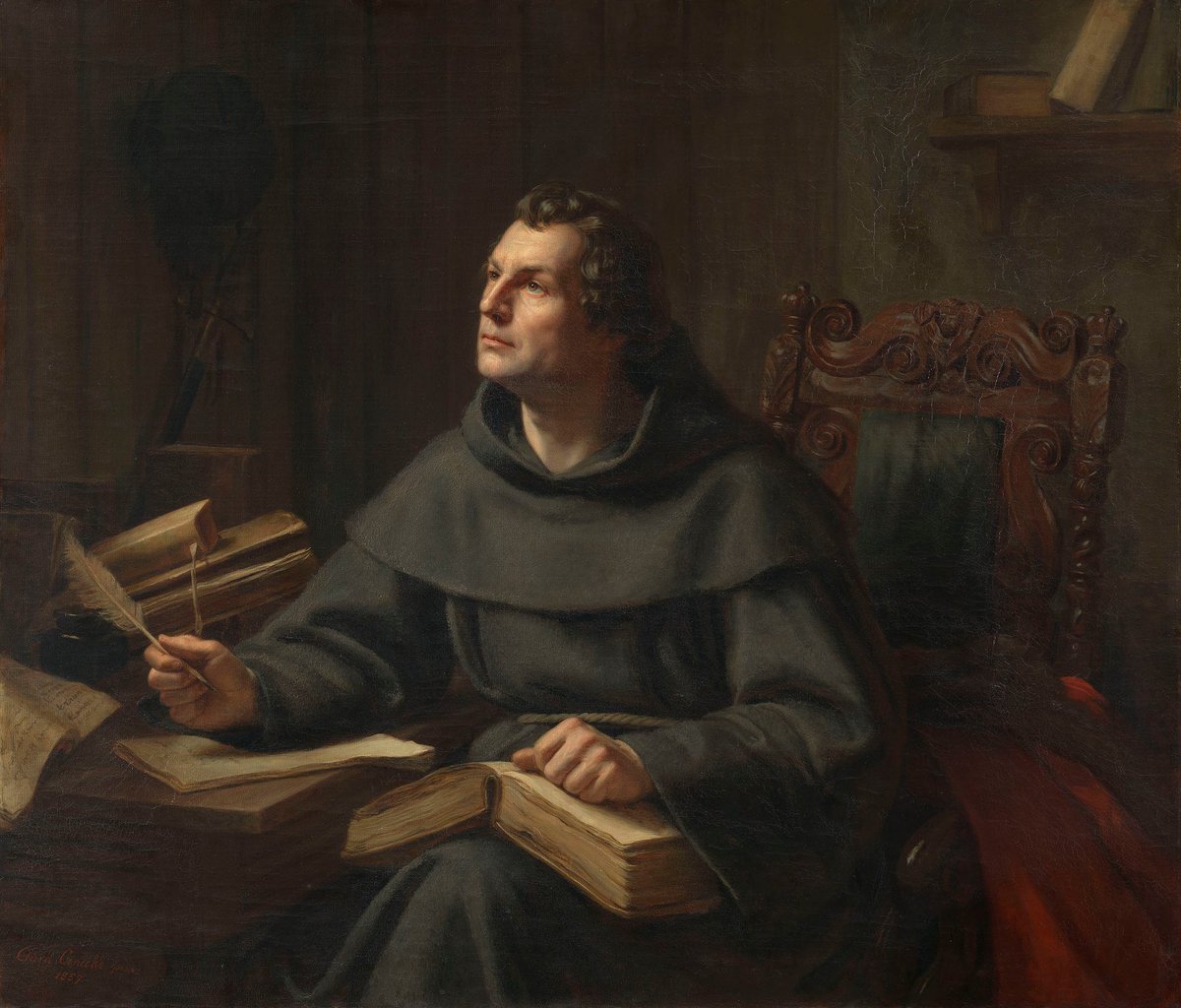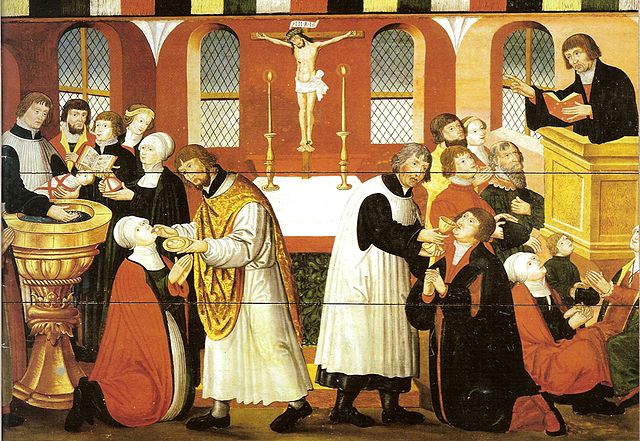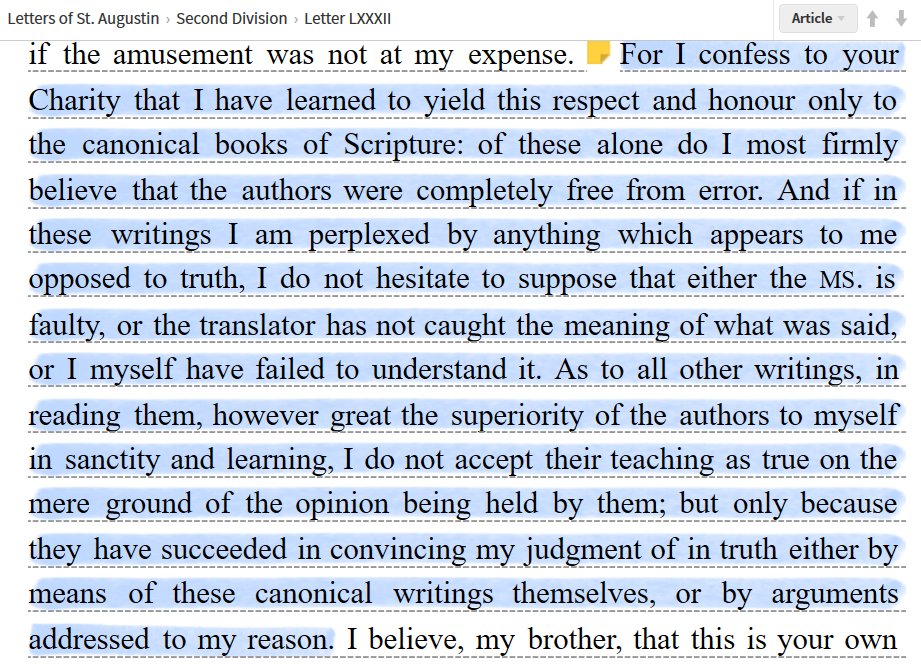St. Paul was married but many don't know this! - a little thread 🧵
Both St. Paul himself in the New Testament and the earliest apostolic tradition is clear that St. Paul was married. Yet many are unware of this as the later tradition, championed by zealos ascetic monks buried..
Both St. Paul himself in the New Testament and the earliest apostolic tradition is clear that St. Paul was married. Yet many are unware of this as the later tradition, championed by zealos ascetic monks buried..
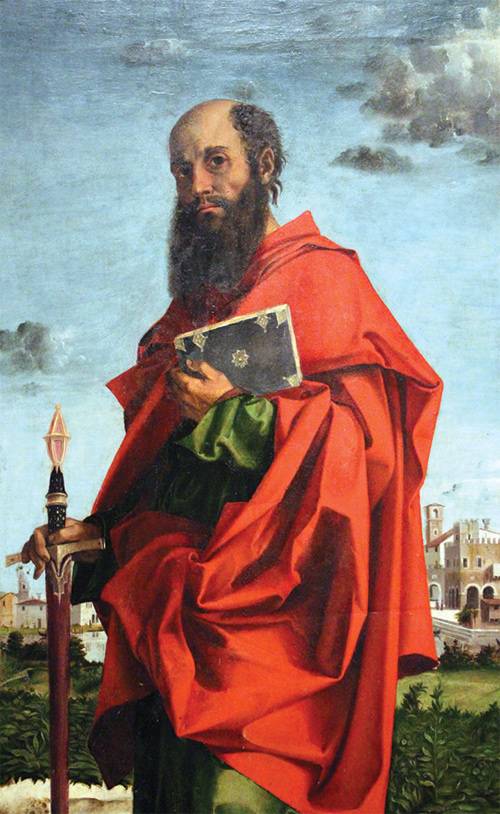
this earlier Scriptural and apostolic tradition. Apart from the fact that Jewish men following divine precepts married so as to raise up sons and multiple St. Paul himself also indicates his marital status at least twice in the NT. First, 1 Corinthians 9:3 he defends himself...
against adversaries viewing him as a lesser apostle claiming his own apostleship as equal to that of the others. Hence he enjoys the same privileges as they do, such as bringing along their wives as St Peter had done, one we also know was explicitly married, Luke 4:38-40 
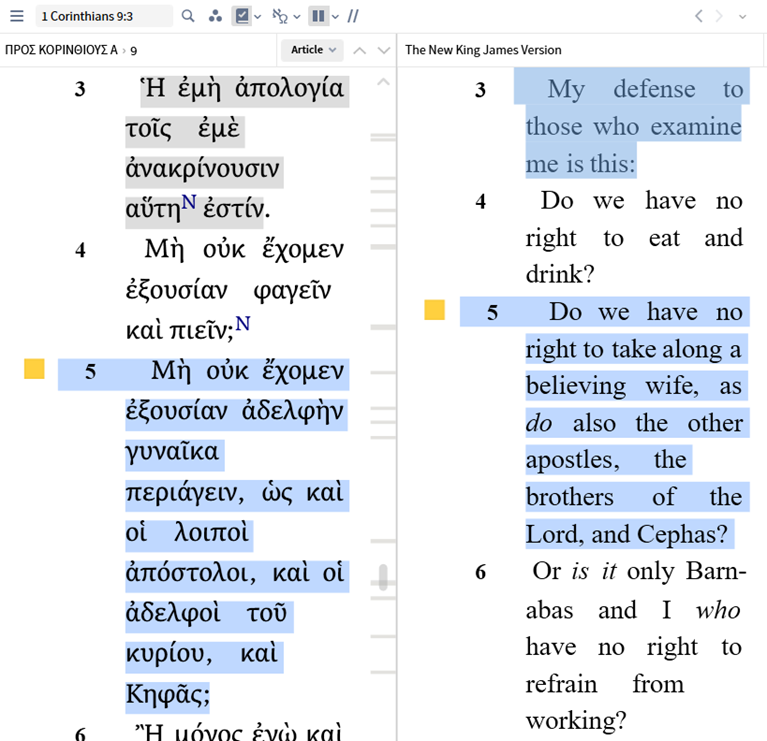
Likewise in Philippians 4:3 St. Paul greets his wife, in the Greek text, σύζυγε, in the vocative. This literally means "the person yoked together with" i.e., his wife whom he has been yoked together with in holy matrimony. The term is also commonly used to mean spouse...
While some might insist on translating the verse differently, the earliest apostolic witness is clear. St. Paul was married and this verse did refer to his wife.
Our earliest witness is St Clement of Alexandria (who interestingly enough, was removed from the Roman martyrology...
Our earliest witness is St Clement of Alexandria (who interestingly enough, was removed from the Roman martyrology...
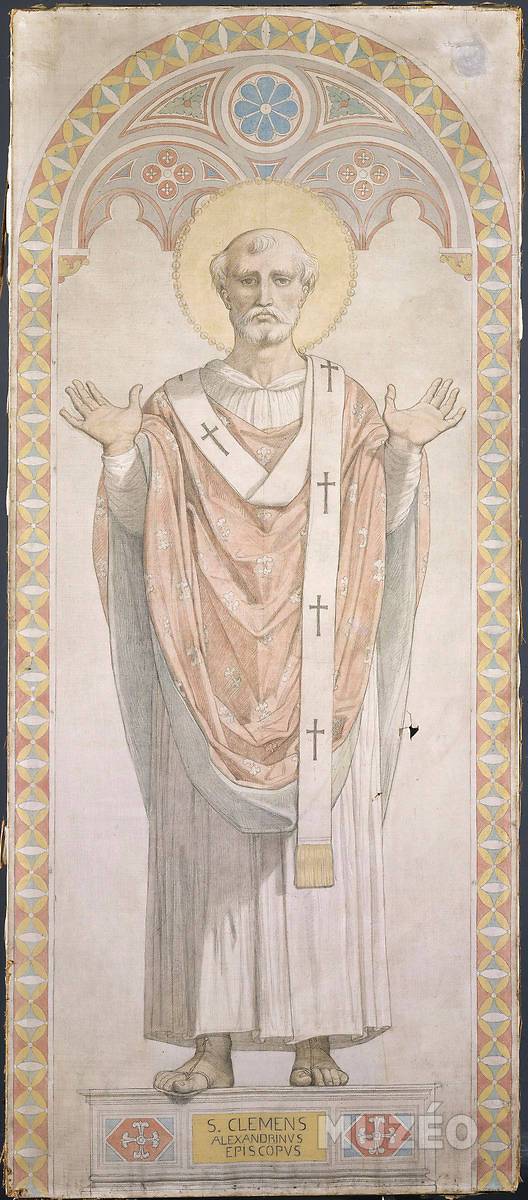
in the 17th century!) he comments in his work the Stromata bk 3:6 that St. Paul was married and that he also greets his wife in Philippians 4:3.
After Clement Origen also refers to the same tradition as Clement, and writes in his commentary on the Epistle to the Romans saying...
After Clement Origen also refers to the same tradition as Clement, and writes in his commentary on the Epistle to the Romans saying...
"Paul, then, if certain traditions are true, was called while in possession of a wife, concerning whom he writes in Philippians "I ask you also, my loyal mate, help these women." Commentary on Romans, chapter 1.
Here he refers to "certain traditions" revealing their status..
Here he refers to "certain traditions" revealing their status..
as things passed on. Moving onto the later centuries the find that Eusebius, the famous church historian with access to all the wealth of ancient patristic literature (indeed many works survive only in part because they were quoted by him!) also concurs and passes on this...
OBJECTION : some might say that Paul couldn't possibly have been married because he says in 1 Cor 7:8 “But I say to the unmarried and to the widows: It is good for them if they remain even as I am”
Answer, this refers to Paul traveling around alone, without a wife (hence why...
Answer, this refers to Paul traveling around alone, without a wife (hence why...
he had to underscore that he did so out of expedience and not by necessity, e.g. 1 Cor 9:3 where he states explicitly that he does have the right to bring along his wife, though he doesn't make use of that right always) so as to allow himself to focus solely on the ministry of...
the gospel. This, he hopes, would also be embraced by other men and women, who, in the absence of a wife, could allow themselves to devote their resources and time exclusively to service of the gospel, as many women and widowers did serving as deacons. Indeed, he also ...
admonishes that the those who have wives should be as if they had none, 1 Cor 7:29. Why is that? He answers later that the married life is one of many cares and he thus exhorts the married not to get lost in their duties and responsibilities but always, as the unmarried, make...
God their greatest focus. St. Chrysostom explains this beautifully in his 14th homily on the First Epistle to Timothy 
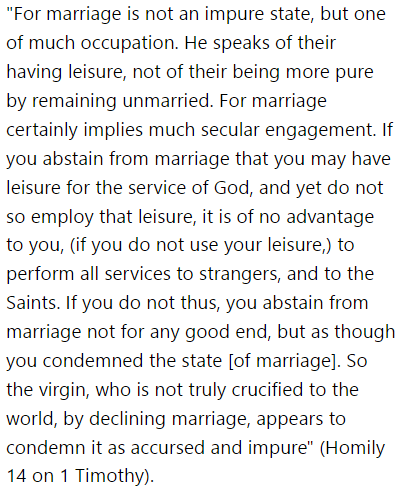
It is not good for a man to be alone, nor is it good for any to denigrate holy matrimony in a confused over-eagerness to praise holy virginity.
• • •
Missing some Tweet in this thread? You can try to
force a refresh

 Read on Twitter
Read on Twitter
